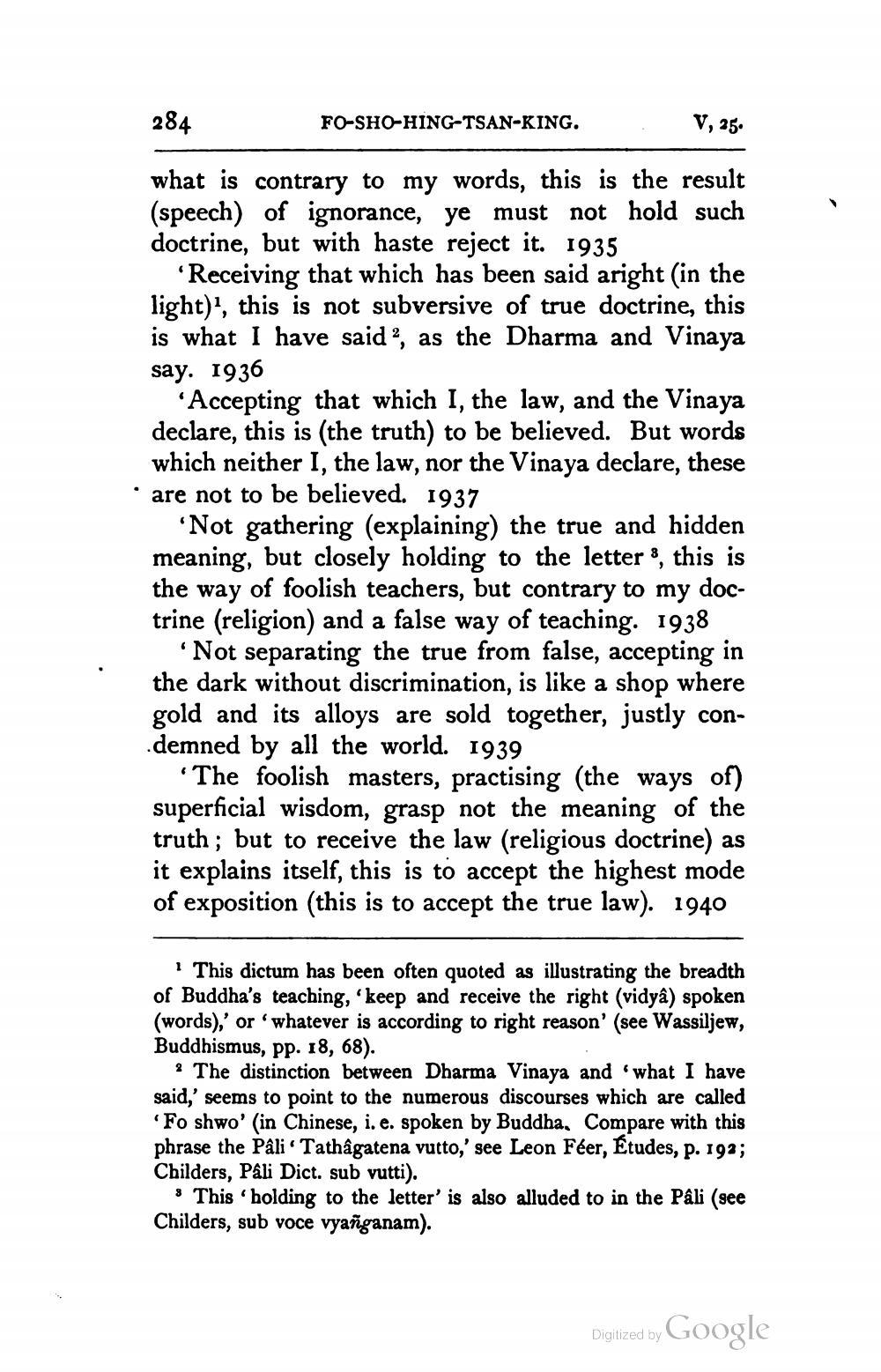________________
284
FO-SHO-HING-TSAN-KING.
V, 25.
what is contrary to my words, this is the result (speech) of ignorance, ye must not hold such doctrine, but with haste reject it. 1935
'Receiving that which has been said aright (in the light), this is not subversive of true doctrine, this is what I have said ?, as the Dharma and Vinaya say. 1936
Accepting that which I, the law, and the Vinaya declare, this is (the truth) to be believed. But words which neither I, the law, nor the Vinaya declare, these · are not to be believed. 1937
'Not gathering (explaining) the true and hidden meaning, but closely holding to the letter 3, this is the way of foolish teachers, but contrary to my doctrine (religion) and a false way of teaching. 1938
'Not separating the true from false, accepting in the dark without discrimination, is like a shop where gold and its alloys are sold together, justly condemned by all the world. 1939
The foolish masters, practising (the ways of) superficial wisdom, grasp not the meaning of the truth; but to receive the law (religious doctrine) as it explains itself, this is to accept the highest mode of exposition (this is to accept the true law). 1940
VO).
? This dictum has been often quoted as illustrating the breadth of Buddha's teaching, 'keep and receive the right (vidya) spoken (words),' or whatever is according to right reason' (see Wassiljew, Buddhismus, pp. 18, 68).
? The distinction between Dharma Vinaya and what I have said,' seems to point to the numerous discourses which are called
Fo shwo' (in Chinese, i.e. spoken by Buddha, Compare with this phrase the Pâli. Tathâgatena vutto,' see Leon Féer, Etudes, p. 192; Childers, Páli Dict. sub vutti).
This holding to the letter' is also alluded to in the Pali (see Childers, sub voce vyañganam).
Digitized by Google




